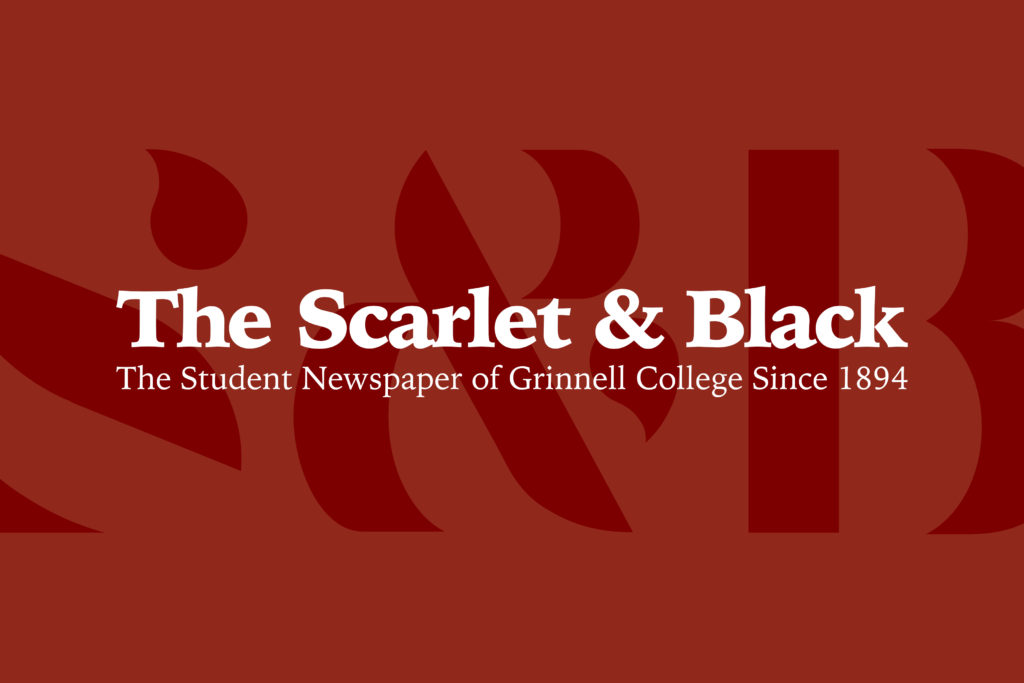Although not a traditional campus event, the Iowa caucuses demand excessive time and energy on the part of the College’s Office of Communication.
Rachel Bly, Director of Operations and Events, has certainly had her hands full. In addition to planning the Ward One caucus happening in Darby Gymnasium, she is also assisting in the planning of the Ward 3 caucus.
“I am mostly in charge of Ward 1 (which includes the College) because it is my job,” said Bly. “However, I am the also Director of Conference Operations and Events, so all the events that happen on campus go through our office. Basically, I make sure that people get all the resources they need.”
For the last week or so, Bly has been in constant communication with Poweshiek County Democrats, the local chapter of the Democratic Party. Her role, besides her day-to-day responsibilities as Director of Operations and Events at the College, is to serve as an intermediary between politicians and Grinnell College bureaucrats.
She is also helping her friend Joni Schmidt, general manager and on-site event coordinator at Hotel Grinnell, plan the Ward 3 caucus.
On Monday afternoon, the two met and discussed the logistical side of the caucuses that is often forgotten by caucus-goers. The most important item on their docket? How to effectively set up Hotel Grinnell’s ballroom.
According to an email sent by Ward Three caucus host John Clayton, the Poweshiek County Democrats were hoping to set up nine folding tables in the gym area itself. It is up to Schmidt and Bly though to make the room both accessible and maneuverable, a problem that frequently pops up before and during a caucus. After deciding where to station the entrance and registration table, Bly and Schmidt discussed possible accessibility concerns.
As part of Ward 3, Hotel Grinnell has an even mix of young and elderly voters. Therefore, Bly and Schmidt wanted to make sure that seating would be available but not hinder the caucus process. Accessibility and room set-up, it turns out, are major components to running an efficient caucus.
While talking this through with Schmidt, Bly mentioned the 2016 caucuses, specifically the one held in the Harris Center.
“One of the problems in 2016 was that we had way more people than we ever had before, and our sites were so small. We used to be in Harris, but we literally burst the seams at Harris. We had to split people into two groups which went into the cinema or the concert hall because our attendance was over the fire code [limit].”
According to Bly, Ward 1 continues to be the second largest caucus in Iowa. Bly also predicts that more than 1,000 people will be attendance this coming Monday.
In an effort to accommodate the number of expected attendees, the 2020 Ward 1 caucus will be held in Darby Gymnasium. According to Bly, the risers will make the process of separating groups and counting votes much easier.
Over at the Mayflower Community, Nancy Wolff is undergoing the same process as Bly and Schmidt. However, as the caucus coordinator for a senior living center, she is always thinking about accessibility and comfort on behalf of her attendees.
“The caucus will be held in the Carmen Center,” said Wolff. “It’s a fairly big room, and everyone will be brought in with their wheelchairs and walkers and canes, and those who can will stand up and walk will be able too. It’s nice because we all will be able to be in the same room. We are also setting up tables so people can have a table to lean on and be more comfortable when signing their preference cards.”
Wolff also explained that unlike many other events in the area, voters must be pre-registered before caucusing at the Mayflower.
“We will just check them off as they come through the door. It’s already been verified, so we are hoping that we can make it as comfortable as possible.”
Wolff is expecting exactly 71 pre-registered caucus-goers and has prepared for all possible accommodations, including equipment for the hearing impaired and handicap accessible furniture.
Working behind the scenes, Wolff, Bly, Schmidt and many others are tirelessly figuring out the logistical side of the upcoming caucuses. While they may all be organizing events in separate locations, their planning styles all have one thing in common: making the caucuses accessible to all who are interested.



















































